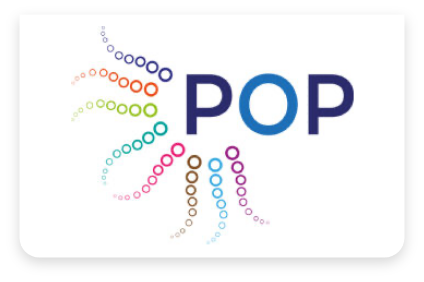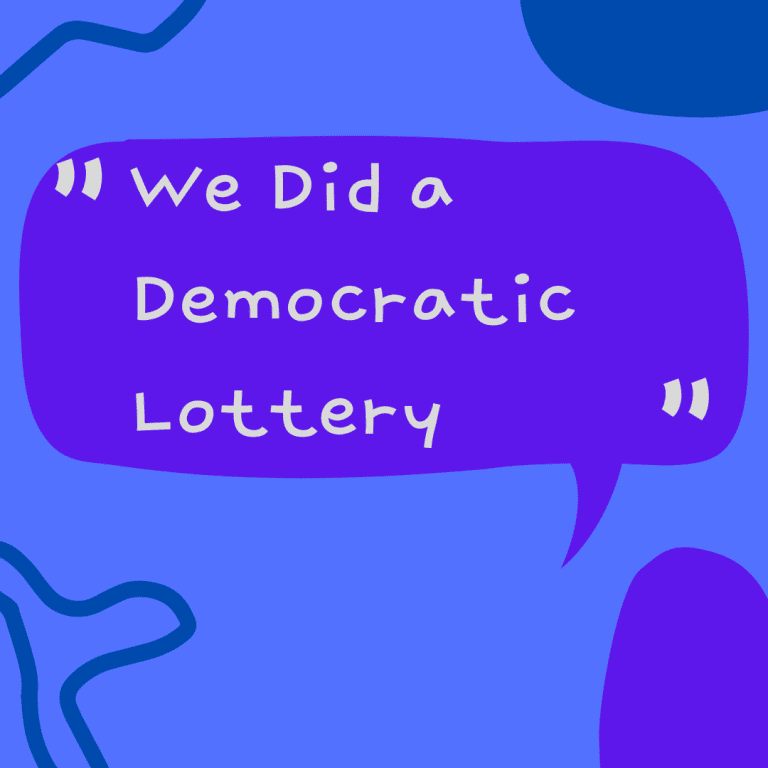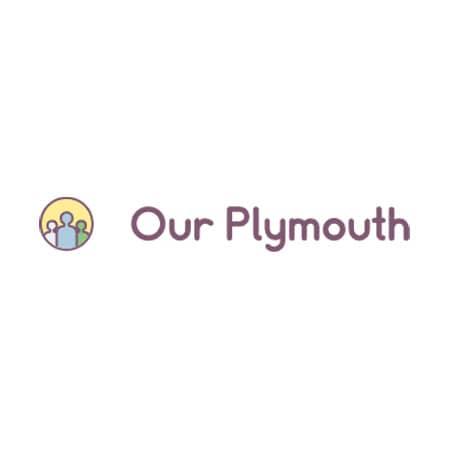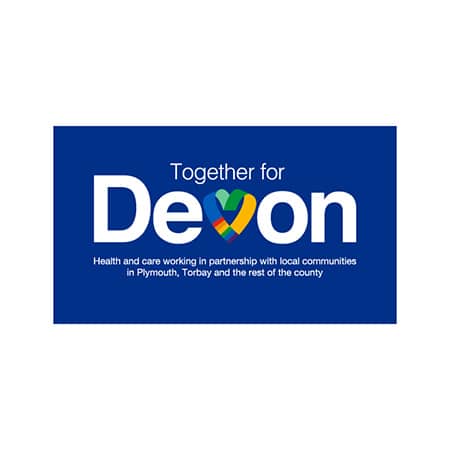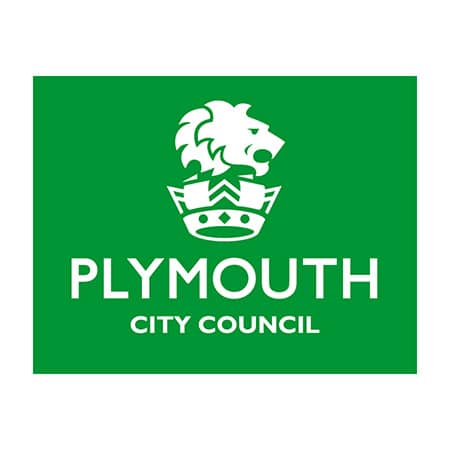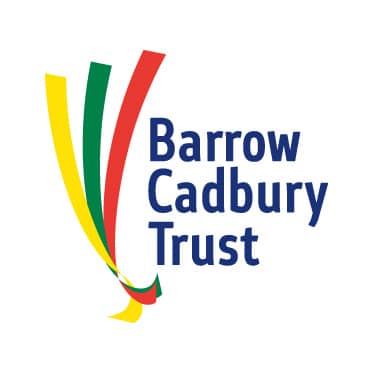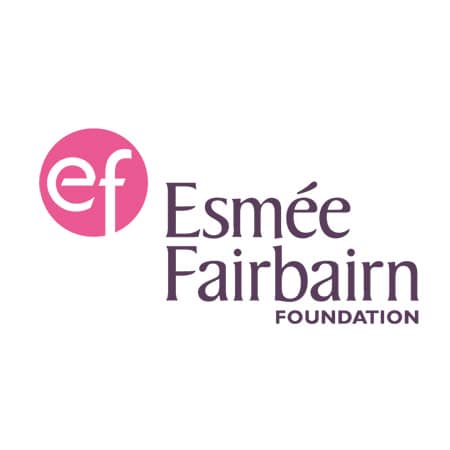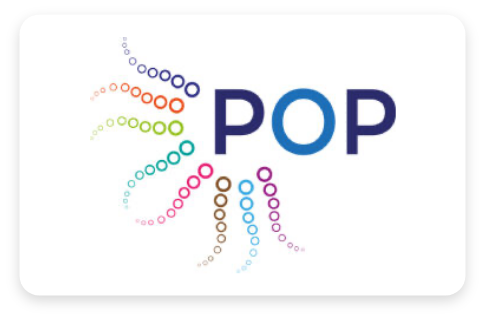By Simon Travers, POP Learning Champion
In the past five years, part of POP’s vision for its role as a local place-based funder has been to challenge the status quo of charitable funding. There is a growing national conversation about how funding models must become more open, participatory, and capable of sustaining collaborative action. POP continues to develop a reputation for running the kind of experiments that provide case studies of what this looks like in practice.
POP’s latest experiment, a process called ‘Mini Systems’, has been to administer grants to collectives of organisations through a democratic lottery. A democratic lottery is a selective process deliberately made by chance. In POP’s experiment, an electronic spinning wheel chose one collaboration out of eight to be funded for £40000. POP recorded the experiment which can be seen here:
The winning collective, and four other groups allocated £5000 each, are now getting to work. POP is ready to share what has been learned through the ‘Mini Systems’ experiment. In a series of blogs, I will attempt to tell the story of why and how POP made this experiment and to seek to reflect what it felt like for those participants who joined in.
POP and Plymouth City Council created a pot of £60000 to be allocated to organisations collaborating in community wellbeing or suicide prevention. The amount of money available invited an experimental approach. £60000 is a significant sum, but not enough to anticipate a city-wide shift in wellbeing improvement or suicide prevention would result from its investment. In other areas of the country, similar pots of money were used for multiple small grants to grassroots organisations. Having already had experience of building collaborations with £5000 POP Collectives grants, POP hoped to test how collaboration impacts work at a larger scale. An agreement was reached to allocate a single grant of £40000, with other smaller grants available depending on the interest of organisations involved in the process.
A project design challenge quickly became clear. Community wellbeing and suicide prevention is a vast area of social provision. In planning for this project, we had to anticipate submissions from diverse collaborations offering initiatives from local craft groups, social action aiming to reduce inequalities, or specialist healthcare for those in crisis. POP has previously awarded funds through both decision-making panels and voting processes involving POP membership and the wider Plymouth public. The limitations of these approaches, in this instance, seemed clear. With a diversity of worthy projects, and with community wellbeing and suicide prevention recognised by researchers as long-term problems with no quick fixes; it felt inevitable that any decision-making panel or voting body would end up guessing at which project was the best.
Matt Bell, POP’s CEO, and I began to see the merits in the democratic lottery approach as modelled by an episode of Malcolm Gladwell’s Revisionist History podcast series entitled ‘The Powerball Revolution’.1 Gladwell tells stories of places where democratic lotteries have been used to choose representatives or allocate funding through means of chance. The usual caveats about Gladwell’s work apply to this podcast. He is prone to exaggeration and prefers to explore individual ideas instead of considering how issues intersect. Having said this, both Matt and I agreed there was something worth exploring in the three arguments presented by Gladwell:
1) Democratic systems tend to reward presentation skills higher than team building and administrative skills.
2) Democratic systems tend to reflect societal biases and unduly reward those who are privileged by these biases.
3) Voters are not good at predicting which leaders or projects will have the best impact.
With these factors in mind, we felt that deciding who would receive the large grant by democratic lottery was a risk worth taking.
Changing the mechanism for how funding decisions would be made immediately altered the application process. Working with a facilitator, individuals began to come together, forming groups as they discussed their ideas and potential projects. Blog 4 and 5 of this series will cover this process in detail. As we observed and reflected on what was happening, we began to realise that when decisions are made by chance:
· it is fruitless to employ traditional techniques of applying for funds.
· There is no longer an in-built advantage for people or organisations with bid-writing experience, strong networks, or a local reputation. Instead, there is freedom to develop the project participants believe in with people they share values with.
Network building became the application process. If an individual or organisation would spend approximately 12 hours to write a bid for £40000 worth of funding, why not instead spend that time sharing and listening with likeminded people?
Seeing new ideas, voices and relationships develop out of this process was exciting. The group that eventually received the large £40000 grant were formed out of the networking process. The idea they are pursuing developed out of their conversations. One of the collective’s members has already received funding through POP Collectives and another is currently in the application process, but two members of the group have not yet been part of a POP Collective.
Some groups came into the process already established, with a clear idea of their structure and purpose. While their experience of the networking application process was different, it still had benefits. Everyone who attended an online or in person networking event met new people and developed awareness of other organisations’ strengths.
Leading a process that was based on network building often felt vulnerable. There were points at which we might have changed our minds. The real strength of a democratic lottery approach though is that it can achieve a funding application process that feels more collaborative. For that reason alone, POP would be interested in continuing to explore democratic lotteries.
That is not to say the process is perfect or without controversy. Unsurprisingly, there were participants who challenged us and questioned if the process was fair. How could it be appropriate to leave a decision to chance and so deny any advantage to having the best or most popular idea or possessing previous experience?
That is a good question. My answer would be that luck already has a significant role to play in funding success and impact delivery. In my next blog, I’ll try to explain why we all need a bit of luck.
1 https://www.pushkin.fm/podcasts/revisionist-history/the-powerball-revolution
